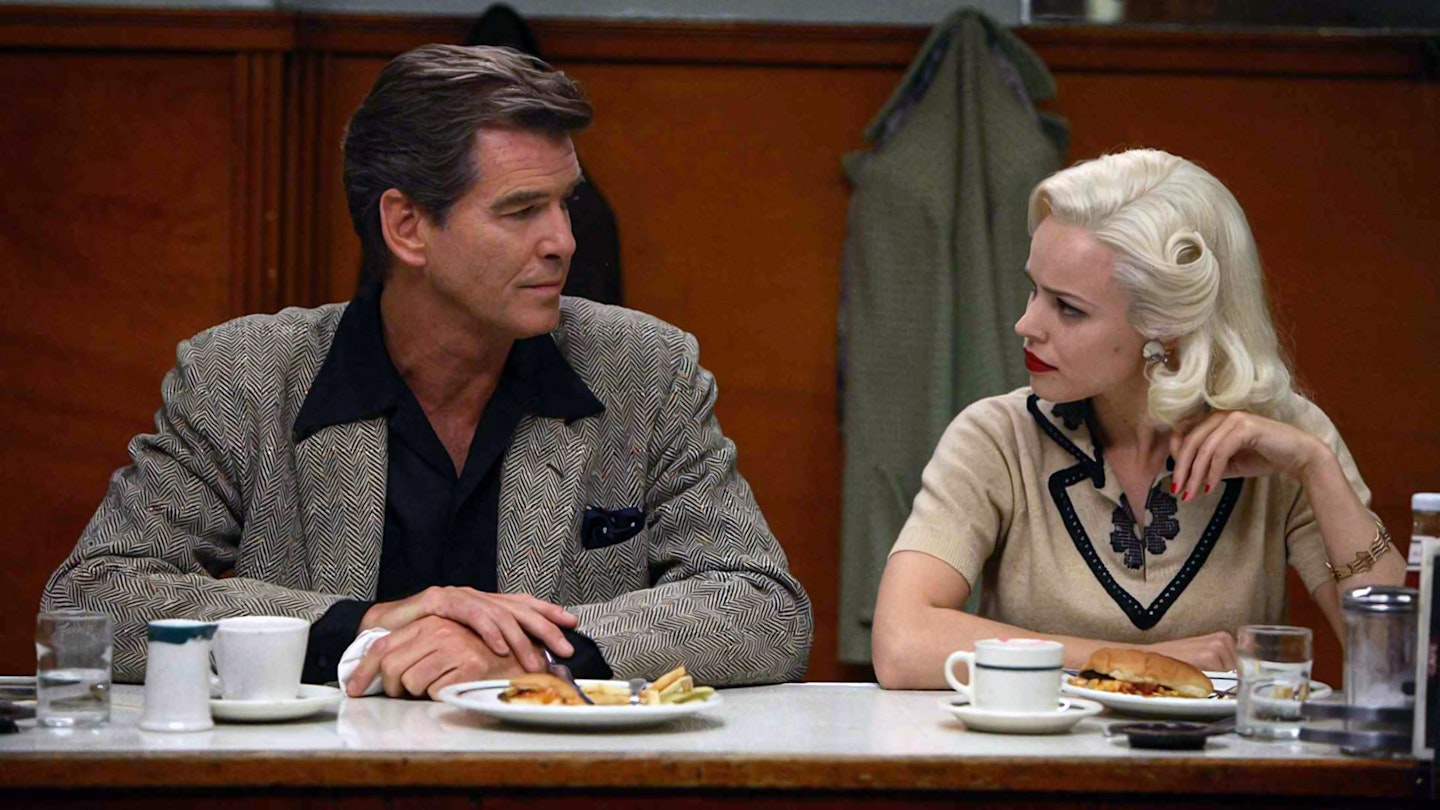This is an odd beast - an almost-noir, a relationship drama and a period black comedy that never feels real, but never feels fake either. It looks great, and boasts a cast who could probably make Showgirls feel weighty if they suddenly suffered mass insanity and decided to try. But it also doesn’t know what it wants to be.
The set-up is familiar. In post-World War II America, Harry Allen (Chris Cooper) tells his friend Richard (Pierce Brosnan) that he wants to leave his wife Pat (Patricia Clarkson) for bit-on-the-side Kay (Rachel McAdams). Richard fancies Kay himself, so he counsels Harry against breaking Pat’s heart. So far, so standard - but the story soon meanders away from your average philandering husband heartbreak drama.
Brosnan narrates and plays Richard, the sort of dashing man’s man, ladies’ man and man about town so beloved of mid-20th century films. It’s similar to roles Brosnan’s played before, but there’s a twist of deceit this time, an edge to the easy charm he displays for his friends that’s handled with sufficient subtlety to make a complex role look effortless. It’s possible, however, that he’s just stepping up to match his co-stars, Chris Cooper and Patricia Clarkson. These two may not share Brosnan’s marquee status, but they’re impossible to overrate. Cooper often gets cast in grey-coloured, buttoned-up roles, and this is no exception. What’s different here is that he gets to flavour the coldness with some heart. And as the film’s focus - Brosnan may narrate, but he takes a back seat - Cooper has a chance to play the leading man, nearly convincing us that he could marry Patricia Clarkson and win Rachel McAdams as his mistress despite the horn-rimmed specs. Clarkson and McAdams, meanwhile, play similar characters, both flawed but still luminous; neither has much to do, but both do it well. The problem is that all the classy cast and lush 1940s locations can’t mask the joins in the story when the film shifts from one genre to another without warning. It swings from Far From Heaven-alike lush melodrama to Double Indemnity-like noir to something approaching black comedy, and the transitions never quite work. Accomplished then, but no classic.
